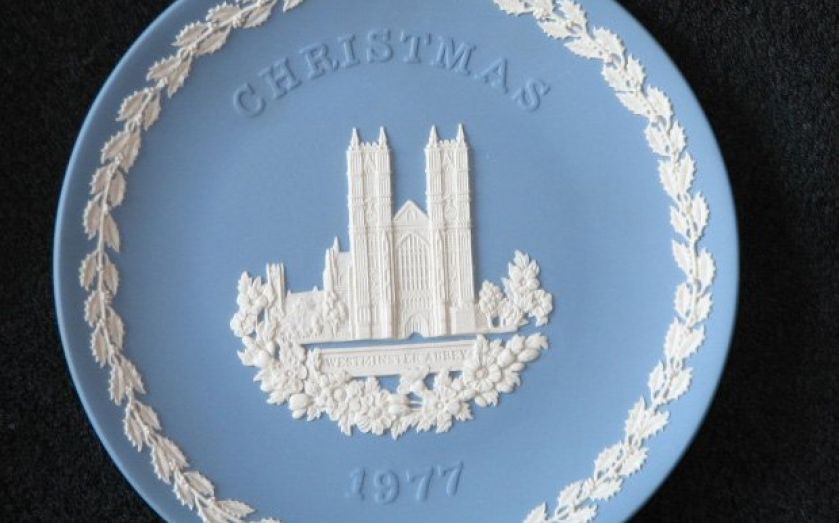The Wedgwood collection is a key piece of our commercial heritage – let’s keep it together

We have three months to save a vital piece of Britain’s commercial heritage. The Art Fund, an independent charity which helps buy art for the nation, has already raised a heroic £13m. It is now seeking a final £2.74m in donations by 30 November to keep the Wedgwood collection together in its Staffordshire home.
Waterford Wedgwood went into administration in 2009, 250 years after Josiah Wedgwood founded his pottery firm in Stoke-on-Trent. In 2011, the High Court ruled that Wedgwood’s 80,000-item museum could be sold to help cover a pension shortfall. Begbies Traynor, the administrator, has been working hard ever since to keep the collection together. After years of negotiation, it has managed to agree a deal to sell the collection in its entirety to the Art Fund – but the purchase must be made by the end of November. Otherwise, it will be dispersed at auction.
Splitting up this museum would be a tragedy. Some of the individual items are treasures in their own right – family portraits of the Wedgwoods by George Stubbs and Wedgwood’s jasperware recreation of that masterpiece of classical glass, the Portland Vase. But it is the comprehensive sweep of the collection as a whole that makes it matter so much.
The history of Wedgwood, as recorded in this archive, is remarkable not just as a tale of entrepreneurial energy, but for its integration of art and science, commerce and liberal values. Josiah Wedgwood captures the power of business to act as a civilising force. A member of the Lunar Society and a man of the enlightenment, he campaigned for the creation of canals and toll roads to improve his country’s infrastructure while pushing forward the technical possibilities of his profession, bringing more beautiful products to a wider audience. Catering to the standards of the wealthiest, he reached out to the middle class as well.
A unique object like the Portland Vase, named for its aristocratic owner, the Duke of Portland, became something that could, if only Wedgwood discovered the correct process, be reproduced for any member of the paying public. It was a quiet revolution, social possibility being reshaped in porcelain.
Wedgwood was always on the side of human liberation. A staunch opponent of the slave trade, in 1787 he produced a ceramic medallion of a slave kneeling in chains under the words “Am I not a man and a brother?”. Set into bracelets, snuffboxes and hatpins, their conspicuous compassion helped shift public opinion.
Thomas Clarkson, founder of the Committee for the Abolition of the Slave Trade, later wrote “the taste for wearing them became general, and thus fashion… was seen for once in the honourable office of promoting the cause of justice and humanity and freedom.” The Wedgwood Collection shows business can be a powerful force for human betterment. In an age grown sceptical of that truth, it is a legacy we need to preserve.
Text WEDGWOOD to 70800 to donate £10 or visit savewedgwood.org. All donations will be matched by a private charitable trust.